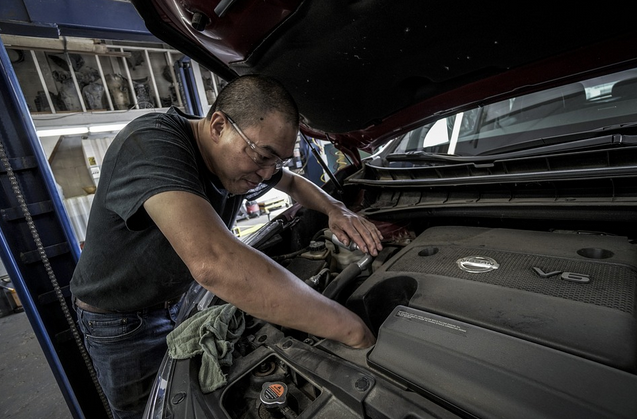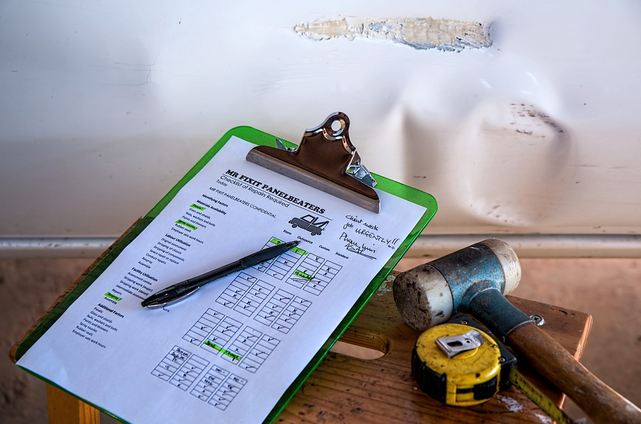
Things You Can Actually Expect From Common Vehicle History Reports
Uncovering the hidden secrets of a vehicle’s past can be both exciting and nerve-wracking. Whether you’re in the market for a new car or just curious about your own trusty ride, delving into its history is like peeling back layers of mystery. So before you buy a used vehicle, read more about it at https://vinmentor.com/can-you-demand-a-car-dealer-to-provide-vehicle-service-history/.
In fact, with a common vehicle history report in hand, you can gain valuable insight into the life your car has lived before it found its way to you. But what exactly can you expect to find on these reports besides maintenance history? Keep reading as we shed some light on some of the key details provided by these comprehensive documents you might have missed.
Lien Information

When purchasing a used vehicle, you’ll really want to know whether there are any outstanding liens on it. A lien is essentially a claim that someone else has on the vehicle due to an unpaid debt. It could be anything from an unpaid loan or lease agreement to ongoing legal disputes.
The presence of a lien can have serious implications for your ownership and enjoyment of the car. For instance, if there’s still money owed on the vehicle, it means that the lender technically has rights over it until the debt is settled. This could result in repossession or other legal actions being taken against you as the new owner.
Recalls
Recalls are another important aspect of any vehicle history report. They provide valuable information on whether the vehicle has been subject to any safety-related issues or defects that have prompted a manufacturer’s recall. When it comes to recalls, you can expect to find details about specific problems that have been identified in certain models or years of vehicles.
These issues can affect from minor nuisances to major safety concerns. The report will outline what the problem is and how it may affect the performance or safety of the vehicle. Furthermore, you’ll also find information regarding whether these recalls have been addressed by previous owners or dealerships. This is crucial because unaddressed recalls can pose risks for future owners if not properly fixed.
Stolen Vehicle Check
When buying a used car, you simply don’t want to get accused of driving a stolen car. Luckily, these reports let you know valuable information about a car’s past, including any reports of theft. A stolen vehicle check will reveal if the vehicle you’re interested in was reported as stolen to law enforcement agencies.
This information is crucial in ensuring that you don’t inadvertently purchase a stolen car and find yourself dealing with legal consequences down the road. The process involves cross-referencing the vehicle identification number (VIN) against databases containing records of reported stolen vehicles. If there are any matches found, it’s a red flag that should not be ignored.
Failed Emissions Test
 If you care about our Mother Nature, which you should, you don’t want to ride a car that has failed emissions tests. It’s an important piece of information that can help you make an informed decision. A failed emissions test could indicate potential issues with the vehicle’s exhaust system or engine performance. If a vehicle has failed its emissions test in the past, it may suggest that underlying problems need to be addressed. These issues could range from something as simple as a faulty oxygen sensor to more serious concerns like a malfunctioning catalytic converter.
If you care about our Mother Nature, which you should, you don’t want to ride a car that has failed emissions tests. It’s an important piece of information that can help you make an informed decision. A failed emissions test could indicate potential issues with the vehicle’s exhaust system or engine performance. If a vehicle has failed its emissions test in the past, it may suggest that underlying problems need to be addressed. These issues could range from something as simple as a faulty oxygen sensor to more serious concerns like a malfunctioning catalytic converter.
When it comes to buying a used vehicle, knowledge is power. And one of the most valuable sources of information at your disposal is the vehicle history report. This comprehensive document provides insights into the past life of a car, giving you peace of mind, knowing you’re going to make an informed decision.